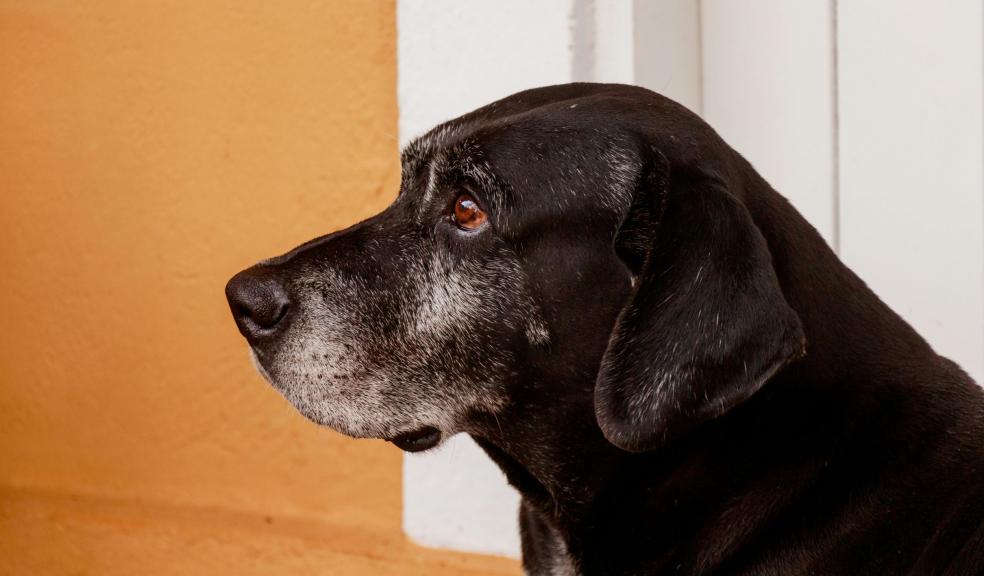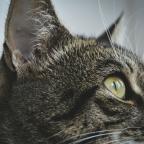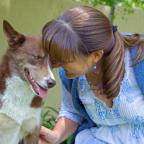
This Senior Pet Month, experts share how to care for aging pets
November is Senior Pet Month, so what better time to discuss how to support our pets as they get older. PDSA Vet Nurse Nina Downing shares top tips for caring for aging paws:
"As our pets start to enjoy a slower pace of life, it's no surprise that weight gain can be an issue for older pets. Dogs, on average, are considered senior at about seven years old. However, this can vary based on breed, size, and overall health. Cats usually live longer than dogs, so they enter their senior stage of life a little later – from eleven years old.
"Senior pets may appear to have less energy and enthusiasm for getting up and moving, which can make it easier to pile on the pounds. And, as weight gain creeps on slowly over time, it can be less noticeable for owners.
"If your pet has trouble burning off the calories they eat, it can lead to obesity, which can shorten their expected life span and affect their quality of life. Overweight pets are more at risk of developing certain health conditions, such as breathing problems and some cancers, and the extra pounds can put additional strain on the heart, other internal organs, and joints.
"Supported by Royal Canin, our Weigh Up campaign helps cat and dog owners learn about pet nutrition and exercise, here's our top tips:
-
To keep your senior pet comfortable and at lower risk of weight-related issues, help them maintain a healthy weight. Feed them a good quality diet that suits their life stage and monitor their body shape (Body Condition Score) regularly. Making it part of your weekly routine will help you spot any weight changes early.
-
Monitoring your pet's weight and shape is vital – just as important as spotting weight gain is being able to identify if your older pet loses weight. For older cats especially, weight loss can be the first sign of underlying health problems. It's important to speak to your vet if your pet loses weight rapidly or you notice they have had significant weight loss and appear underweight, without a change in diet.
-
Remember, 'slowing down' and weight changes don't have to be an inevitable part of ageing, and not all senior pets age the same way. If you see any changes in your older companion, talk to your vet as there are many treatments available to support pets through their senior years.
-
Provide daily exercise to suit your pet. Your pet should stay active as they age because regular exercise will help maintain their muscle tone and promote healthy joints. Whether it's enjoying playtime with your cat or taking a casual stroll with your dog, regular, daily movement is important. Taking shorter, manageable walks more often or having playtime during the day will help prevent weight gain and keep them mentally stimulated.
-
Feed your pet the right diet in the right quantities. Ensure your pet's diet supports healthy ageing. Like us, senior pets need to eat a diet that supports their ageing bodies and meets their individual needs. Feeding your pet the right amount of good quality food for their age can maintain good health, prevent age-related weight gain, and allow them to live a happy, healthy life. To achieve this, you may need to cut out extra treats or swap to a more suitable food for your pet.
"In addition to weight gain, some age-related problems your senior pet may face stiff joints and reduced mobility. Carrying extra weight will make things worse, especially if your pet already has arthritis or other joint problems. Overweight pets in particular may struggle to get up and move around. Sadly, this can lower their quality of life, especially when daily activities (such as going outside to the toilet) start to feel like an impossible task.
You can support your pet's joints by providing:
-
Soft but well-supported beds - keep them slightly elevated from the floor and away from draughty doorways. Cats prefer to have their beds higher up, so add easily accessible steps.
-
Ramps - position them near doorsteps so your pet can get in and out of doorways with ease and use them to help your pet get into a car.
-
Cat litter trays that have lower sides - if you live in a multi-story home, make sure you have litter trays on each floor.
-
Nonslip mats so your pet can more easily walk around on smooth floors.
"Healthy ageing starts with a good diet. So once your pet hits the senior years, it's a good time to review what they eat. The goal of senior food is to provide older pets with high-quality, easy-to-digest ingredients. This allows their bodies to use the nutrients from their food more easily.
"Remember, pets can't feed themselves, so it's up to you as their owner to feed them an age-appropriate diet. All senior pets have different needs, so if you're unsure, speak to your vet as they'll be able to give you advice based on your pet's age, health, and lifestyle."
For more expert guidance on pet nutrition and exercise, visit the Weigh Up webpage: www.pdsa.org.uk/weighup







